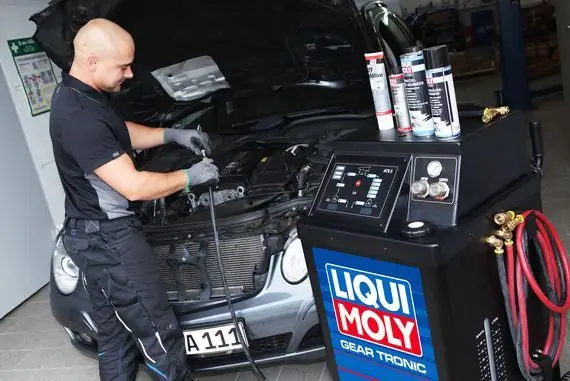2026 Author: Erin Ralphs | [email protected]. Last modified: 2025-01-22 21:14:16
Cars with automatic transmission are no longer a rarity on our roads. A couple more years - and the automatic transmission will completely replace the mechanics. The automatic transmission is convenient to use. But so that it does not cause complaints during operation, you need to know how to properly maintain it. The key to a long resource is the timely replacement of the oil in the box. On automatic transmissions, it is done by a partial method or by a hardware replacement method. The latter method is more correct from a technical point of view. But to perform such an operation, you need a special apparatus for changing the oil in the automatic transmission. What is it and how does such a unit work? Find out in our article today.
Characteristic
The automatic transmission oil changer is a small stationary or portable stand that connects to the automatic transmission system and replaces the old fluid with a new one.

Today there are several popular manufacturers of such units:
- Impact (Korea).
- Winns (USA).
- Civic (Russia).
How does it work?
The principle of operation of any automatic transmission oil changer is simple. The unit is connected to a 220 V network and starts pumping liquid using an electric pump. There are devices with pneumatic drive, but they are less convenient to use and take up a lot of space.
We also note that the automatic transmission oil changer can operate on a 12 V network. It all depends on the characteristics of the pump that replaces the liquid. The units are able to work with all types of automatic transmissions, where a cooling system is provided. It is through the radiator pipes that a similar unit interacts with the transmission.
Does a hardware oil change hurt the box?
There is an opinion among motorists that this replacement method is not suitable for all automatic transmissions. Like, with the hardware method, all “useful” deposits are washed out of the box, and after such an operation, the box starts to kick. In fact, there are no “useful” deposits in automatic transmissions. This is a myth.

Harm can only come from if, when replacing, not 100, but 50% of the new liquid is poured into the system. As a rule, such tricks are used by unscrupulous service stations in order to save money. After all, a liter of ATP-liquid costs about 1 thousand rubles. And in total it takes about twelve to replace.
In what cases will such an operation beuseless?
There are situations when, after changing the ATP fluid, the box still kicks and pushes when switching gears. This usually happens when ignoring the timing of oil changes. A simple example: you bought a used car, the former owner of which assured that he recently made a hardware replacement of ATP fluid. In fact, it smells of burning and has not changed for a hundred thousand kilometers.
Even if you completely replace the fluid with a new one, rinse the valve body and put in a new filter, the kicks will not disappear. The point is the clutches, which once burned out and began to slip. In this case, automatic transmission repair is required. It is better not to carry out this operation with your own hands, since such a box has a more complex device than mechanics.
After how much to change the oil in automatic transmission?
Regardless of whether it is a four- or six-speed automatic, the replacement schedule for all automatic transmissions is the same - 60 thousand kilometers.

But that's not all. At the same time, the oil filter is replaced. By the way, with the partial method, this regulation is different. How often to change the oil in the automatic transmission? The regulation is 30 thousand kilometers.
How is the replacement done?
A similar operation is performed on a heated box. The car is driven into the box, and the master connects the device to the break in the system between the oil cooler and the box. When connecting, it is important to determine the direction of fluid flow and find out from which pipe the used oil will come. How it's done? First you need to connectdevice to both terminals and start the car. Further, the unit itself will determine where and from where the liquid will go. You can also find out the direction manually. But in this case, an empty container is substituted under the nozzle. From where the liquid will flow, there will be a return hose.
After connecting, pour new ATP liquid into the tank of the device. If this is a variable transmission, then CVTF fluid is used. Next, you should start the car engine, and set the replacement mode on the device itself. It is entered manually by means of two three-way valves. Next, you need to control the colors of the liquid that go on both sides.
Initially, the return line will be black. But as the unit works, it will turn red. As for the flow indicators themselves, these are usually two glass transparent cones. On some models (for example, the Civic KS 119) there is an LED backlight.
During the operation of the unit, you must constantly monitor the condition of the liquid. Its flow rate is determined by the level of oil in the tank with the old waste. The inlet and outlet fluid flows must be the same. If necessary, their movement speed is adjusted on the device, since the automatic transmission pump does not always operate at the same frequency as the unit itself. There are models on which this process is controlled automatically. The electronics itself regulates the flow and volume of fluid movement.

When all the oil from the reservoir is pumped into the box, the unit is switched to recirculation mode and the engine is turned off. Modern oil changershave sound indication. Thus, the device itself will give a signal when it is necessary to complete the process. Next, the master checks the oil level in the automatic transmission and, if necessary, renews it to the desired level. This completes the ATP fluid replacement operation. You can start full operation.
Features of replacement on continuously variable transmissions
On some variable automatic transmissions (these were installed on Toyota) there is no dipstick by which you can determine the oil level in the box.

In this case, units are used that have an automatic flow control function. This feature allows you to use less CVTF fluid.
Conclusion
So, we found out how oil is filled in automatic transmission by a complete replacement. Such an operation will completely replace the ATP fluid in the box. If you adhere to the given regulations, it is unlikely that you will have to do the repair of the automatic transmission with your own hands. This box will last a very long time.
Recommended:
Oil change VAZ 2107: types of oil, specifications, dosage, instructions for changing the oil yourself
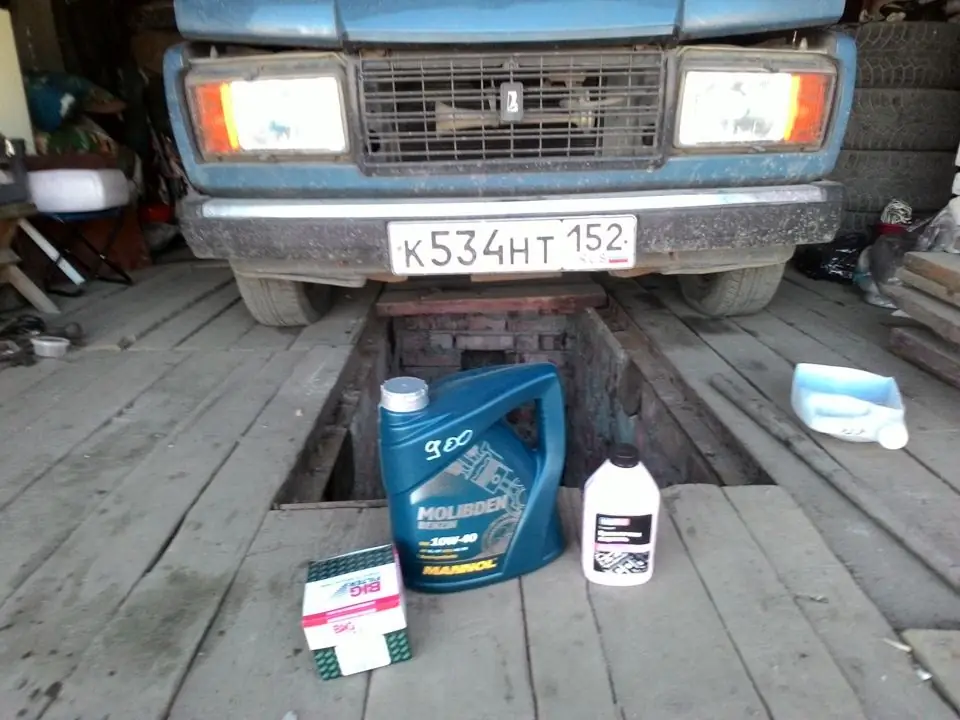
The article contains detailed instructions for changing the oil in VAZ 2107 engines. In the text you can find information about when a change is required, what kind of oil happens, the tools necessary for the "procedure" and a complete description of the process of changing the oil in a car
Automatic transmission: oil filter. Do-it-yourself oil change in automatic transmission
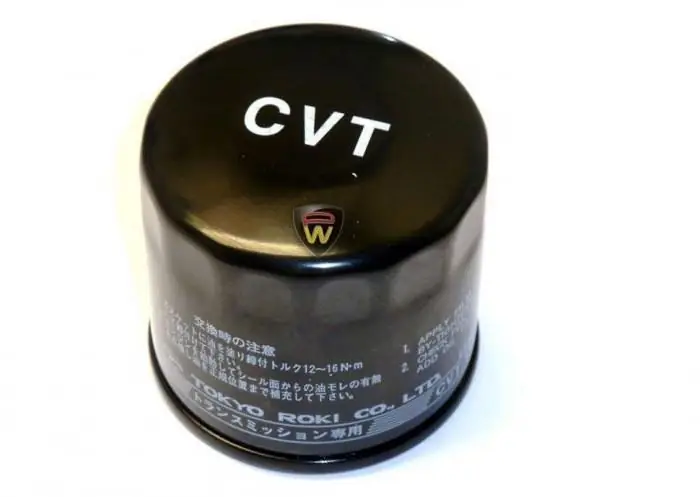
Modern cars are equipped with different gearboxes. These are tiptronics, CVTs, DSG robots and other transmissions
Do I need to change the oil in the automatic transmission? Description of the automatic transmission, timing and method of oil change
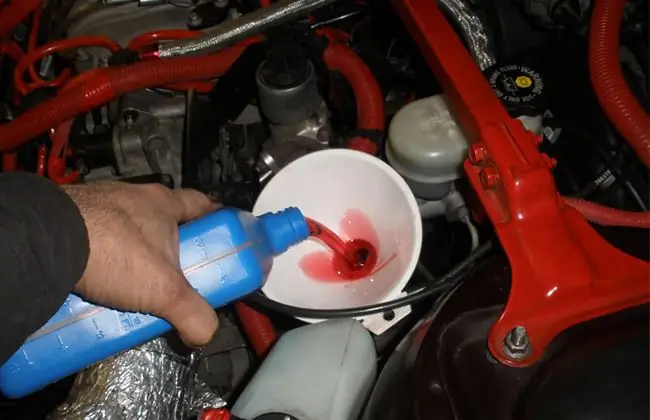
Automatic transmission is the second most popular. But nevertheless, this gearbox is gradually replacing the mechanics, which so far occupies a leading position. Automatic transmission has a number of advantages, the main of which is ease of use
How to check the oil level in automatic transmission? Oil for automatic transmission. Oil dipstick
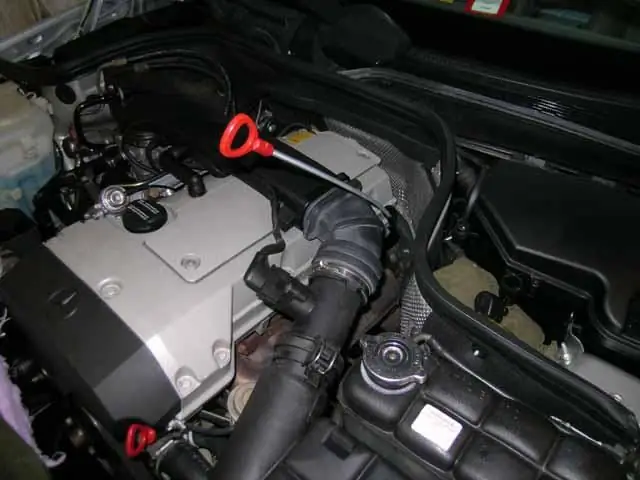
In this paper, the question is considered: "How to check the oil level in automatic transmission?" And also directly with the help of which the oil level in the automatic transmission is checked. Tips are given on the selection of oil, instructions are given for changing it yourself
How often to change the oil in a car engine?

There are more and more motorists on the roads - this is a consequence of both the growth of the population in general and the improvement in living standards. Having a car becomes simply an obligatory part of the social image of a prestigious person, and not just functionally used as a means of transportation

